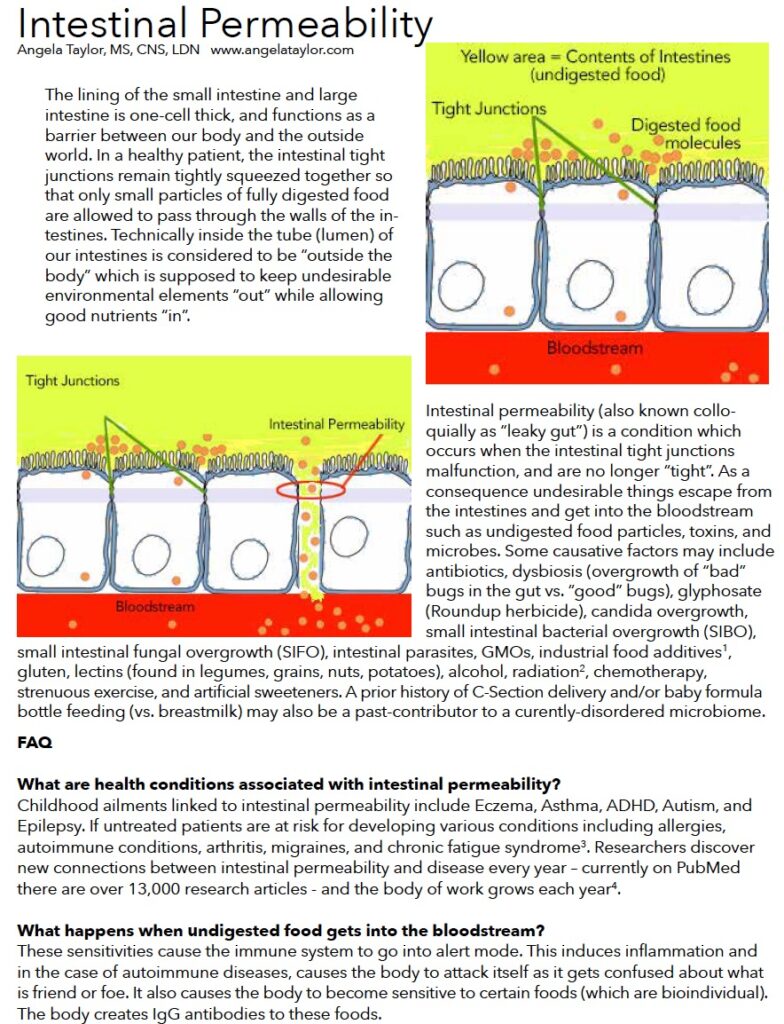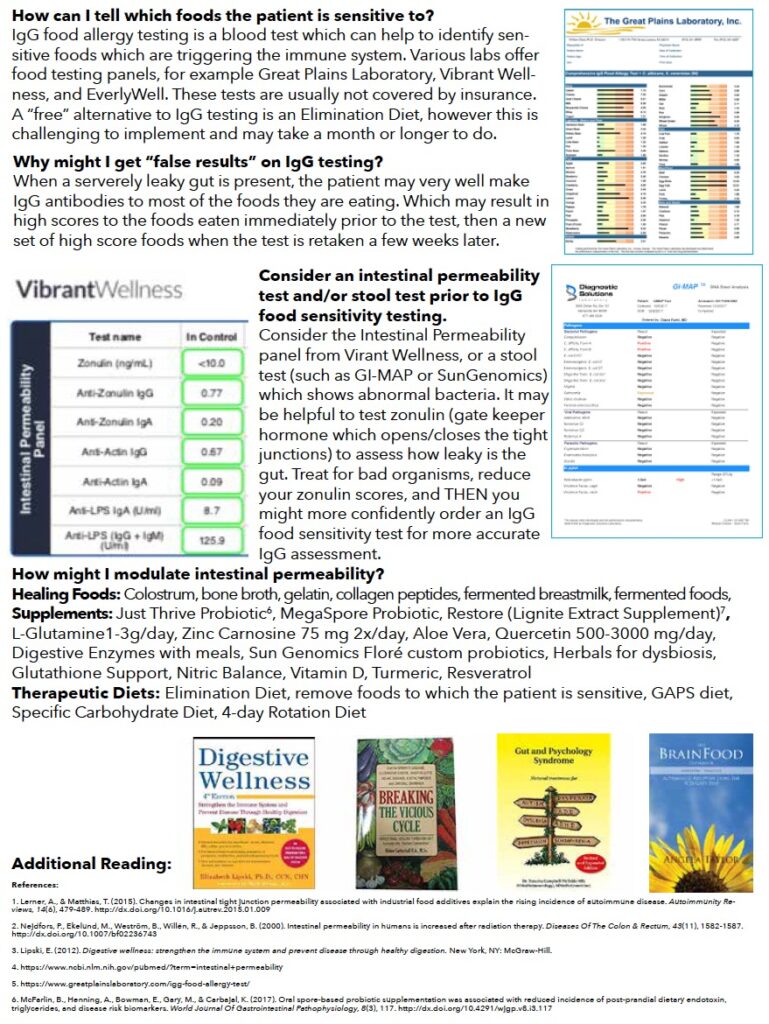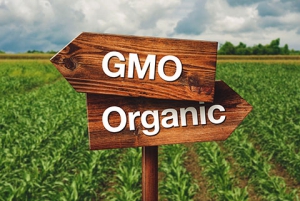IgG Food Sensitivity Testing
Q: I was just wondering if you think the IgG food testing kit from Everywell would work?
A: Perhaps – Everlywell looks like a perfectly good lab. And, it is handy for people to have access to an affordable direct-to-consumer test. However I do have some reservations about finger-prick IgG tests: someone taking immune suppressant meds, or with overall low SigA due to a worn-out immune system (surprisingly common) may get false negatives. (meaning, they actually do have food sensitivities but their test results will suggest things are OK) For this reason I always prefer to go with an actual serum draw (into vials) so Total Immunoglobulin levels can be measured (vs. at-home finger prick blood sample cards).
I’m a fan of this IgG test from Great Plains, which does offer serum testing https://www.greatplainslaboratory.com/food-map-igg-sensitivity-profile. However, a practitioner would need to order this test. (and BTW – there are several other good labs offering practitioner-ordered IgG tests)
My clinical experience of IgG food testing of people with healthy intestinal integrity suggests that people may very well have a few “forever-banned” foods unique to them. For example, my own lab testing shows that my gut is intact, yet I am highly reactive (make IgG antibodies) to lemons, bananas, pineapple, oysters, cabbage, and asparagus. Whereas my son (who also has healthy intestinal integrity) can safely eat all of my IgG problem foods, but he is highly reactive (makes IgG antibodies) to walnuts, pecans, and buckwheat.
I often recommend to my clients they work on alleviating intestinal permeability prior to IgG testing to maximize its accuracy. (see: Intestinal Permeability) Someone with a severely leaky gut may make IgG antibodies to virtually everything they are eating. (I wouldn’t call that false positives, because they actually are making antibodies when eating those foods right now.) But later on some of those foods may actually be OK for that person, if they fix their guts. So I often tell folks receiving their first-ever IgG foods test, these aren’t necessarily your forever-banned foods, but we ought to do some work to improve intestinal integrity/help your body reduce its production of antibodies to those foods before declaring them OK to eat again.
Common root causes for intestinal permeability include glyphosate, gut dysbiosis, and gluten consumption. Going gluten-free, eating organic, and filtering drinking water, are easy at-home steps anyone can take to improve their intestinal integrity. But reducing dysbiosis is a more challenging task – I have my best clinical success combining functional testing, specific herbals, and high doses of specific probiotics. Mold remediation is also called for if functional testing reveals a mold problem. My currently preferred functional lab tests are the Organic Acids and MycoTox from Great Plains combined with stool testing from Sun Genomics.
In conclusion, an IgG test from a direct-to-consumer lab using finger-prick collection cards may be useful for some people, but not everyone. Those with chronic health conditions may benefit from taking a look at the bigger picture including dysbiosis, mold, and intestinal permeability, along with food sensitivities.
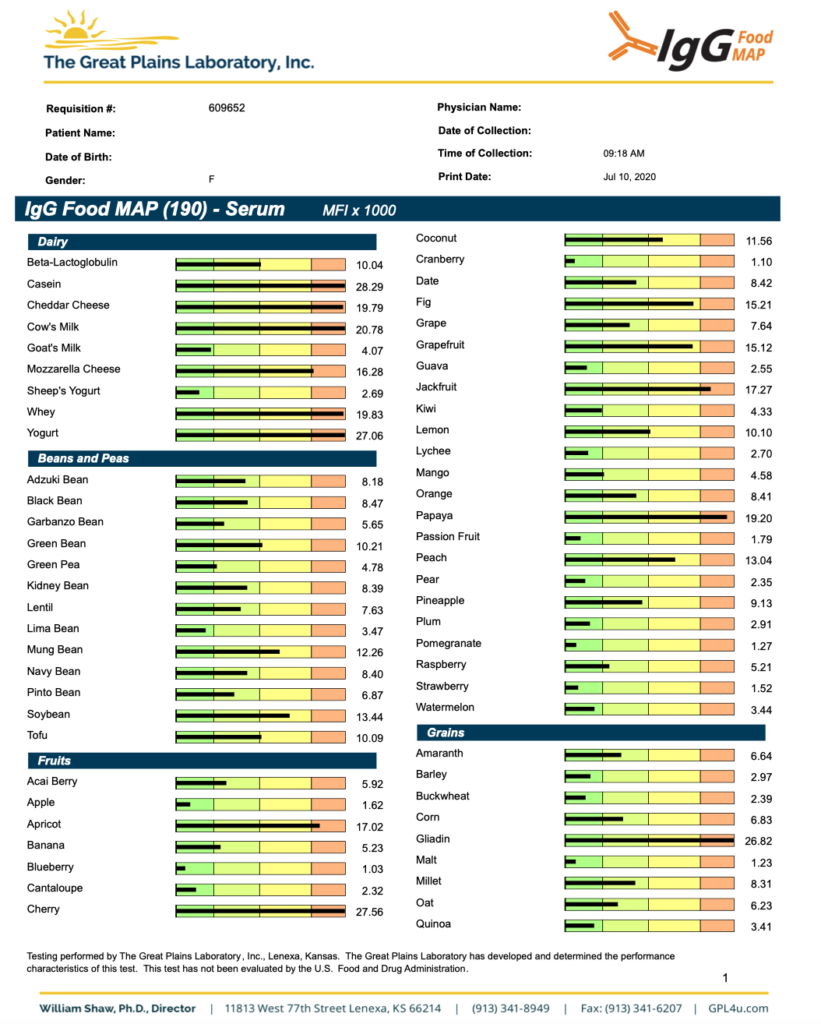
Cronometer – Food Logging
Fermented superfoods shopping guide

• Be cautious of Kombucha – contains yeast strains/alcohol that might not be a good fit for young children and/or those with candida issues
• Coconut Yogurt (such as Cocoyo)
• Apple Cider Vinegar
• Sauerkraut
 Many of my private coaching clients reveal to me that their children eat low-to-no vegetables. This concerns me because it sets the child up for numerous vitamin deficiencies. Furthermore, a low-fiber diet leads to constipation.
Many of my private coaching clients reveal to me that their children eat low-to-no vegetables. This concerns me because it sets the child up for numerous vitamin deficiencies. Furthermore, a low-fiber diet leads to constipation.United States Department of Agriculture, MyPlate. Available at www.myplate.gov.
Folate (Vitamin B9)
Folate (Vitamin B9) is essential for numerous functions in the human body, and many autistic and ADHD children are low in this essential nutrient. I hope you find this video to be useful and informative.
If you’d like to have a hard copy, you may download Folate PowerPoint Slides (PDF).
Please remember that no matter your dreams or obstacles, you have the power to change your child’s life. I sincerely hope our resources can help you do just that.
Can I eat chocolate on the GAPS diet?
Although the SCD list disallows chocolate, here is a quote from Dr. Natasha’s FAQ page:
“When can cocoa be introduced?”
“Cocoa is SCD illegal. However, I find that many people can start having it occasionally on the Full GAPS Diet, once the digestive symptoms are gone. Find pure organic cocoa powder. Mixing the powder with some honey and [raw A2 milk, homemade] sour cream makes a delicious dessert, and you can add it to your [raw A2 milk] homemade ice cream or cakes. After trying it for the first time, observe your patient for any reactions. Cocoa is very rich in magnesium and some essential amino acids and, unless your digestive system is not ready for it, there is no need to avoid it.”
Author Baden Lashkov (The GAPS Guide) says this in her blog post Pure Cocoa – Tried and True? where she asks folks who are eating GAPS/SCD to comment if they can tolerate cocoa powder. Some can & some can’t. I’d say it’s OK to try if you don’t have any current digestive issues.

Roundup is the trade-name for glyphosate, an herbicide used as a weed killer and as desiccant (drying agent) in grain harvesting. Many choose to avoid this chemical in their diets to avoid potential health risks and until now, the best one could do was to buy organic (which prohibits glyphosate from being sprayed directly on the crop).
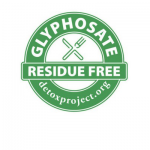 But what about glyphosate residue? This can happen from spray-drift, or pollination from bees, or animals consuming glyphosate-containing feed, or manure spread as fertilizer upon fields. I’m happy to say that glyphosate-free certification is now available from The Detox Project.
But what about glyphosate residue? This can happen from spray-drift, or pollination from bees, or animals consuming glyphosate-containing feed, or manure spread as fertilizer upon fields. I’m happy to say that glyphosate-free certification is now available from The Detox Project.
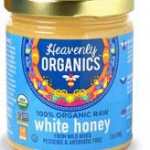 Heavenly Organics (purveyors of wild-sourced honey) is one of the first companies to acquire this certification. I have spoken personally with their staff and I’m impressed with their commitment to eco-friendly honey harvesting which brings income to remote farmers in India and preserves ancient forests. The farmers sustainably harvest from the hives after sunset (while the bees are calm) and therefore they don’t need to use smoke while harvesting. The glyphosate-free certification is one more reason to buy from this excellent company.
Heavenly Organics (purveyors of wild-sourced honey) is one of the first companies to acquire this certification. I have spoken personally with their staff and I’m impressed with their commitment to eco-friendly honey harvesting which brings income to remote farmers in India and preserves ancient forests. The farmers sustainably harvest from the hives after sunset (while the bees are calm) and therefore they don’t need to use smoke while harvesting. The glyphosate-free certification is one more reason to buy from this excellent company.
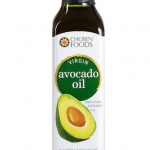 Another company utilizing this new certification is Chosen Foods for its avocado oil products. I’m a big fan of avocado oil because of its high smoke point – it is stable up to 500°F. I now use olive oil only for salad dressing, and instead use avocado oil for high heat applications such as broiling, barbecuing, sautéing and stir-frying.
Another company utilizing this new certification is Chosen Foods for its avocado oil products. I’m a big fan of avocado oil because of its high smoke point – it is stable up to 500°F. I now use olive oil only for salad dressing, and instead use avocado oil for high heat applications such as broiling, barbecuing, sautéing and stir-frying.
Please remember that no matter your dreams or obstacles, you have the power to change your child’s life. I sincerely hope our resources can help you do just that.
GMOs and Roundup are bad for your health
GMO (Genetically Modified Organisms) / GE (Genetically Engineered) foods are lab-created by altering the genetic code of a plant or animal. For example GMO corn contains Bt toxin. A recent study (Mesnage et al., 2012) showed that consuming Bt corn can cause gut permeability or “leaky gut”. When your gut becomes permeable everything that you eat leaks directly into your bloodstream, which can result in food allergies and food intolerances. Children are more prone to the dangerous effects of leaky gut and dysbiosis.

Roundup is the trade name of Monsanto’s glyphosate-containing herbicide. GMO crops are engineered to withstand Roundup spraying, which theoretically kills weeds but spares the crop. Unfortunately this means there are traces of Roundup in foods made from these crops. When humans consume Roundup it disrupts the microbiome in our guts (via the shikimate pathway), and disrupts other microbes in our bodies. Since the human body lives in partnership with microbes – to digest our food, make amino acids, and much more – this disruption of the human microbiome can damage our health. U.S. scientists Samsel & Seneff showed that glyphosate inhibits cytochrome P450 (CYP) enzymes which are necessary for crucial processes including the detoxification of xenobiotics [toxins], synthesizing amino acids [proteins], and to transport sulfate in the bloodstream.
What crops are GMO? In the U.S. more than 90% of all corn, soy, and cotton are GMO. Other approved food crops include canola, papaya, sugar beets, alfalfa, and summer squash.
Since “You are what you eat” be sure to purchase organic produce in order to avoid GMOs and Roundup exposure. You will also want to purchase organic animal products, because “You are what your animal eats” too. (organic animal products are fed organic feed)
Here are additional resources if you’d like to learn more:
The Ultimate Guide to GMOs – free eBook
GMOs Revealed – 9-part Docuseries
Please remember that no matter your dreams or obstacles, you have the power to change your child’s life. I sincerely hope our resources can help you do just that.
References
Mesnage, R., Clair, E., Gress, S., Then, C., Székács, A., & Séralini, G. (2012). Cytotoxicity on human cells of Cry1Ab and Cry1Ac Bt insecticidal toxins alone or with a glyphosate-based herbicide. Journal Of Applied Toxicology, 33(7), 695-699. http://dx.doi.org/10.1002/jat.2712
Samsel, A., & Seneff, S. (2013). Glyphosate’s Suppression of Cytochrome P450 Enzymes and Amino Acid Biosynthesis by the Gut Microbiome: Pathways to Modern Diseases. Entropy, 15(4), 1416-1463. http://dx.doi.org/10.3390/e15041416
Food & Behavior Research Study
On British TV show “The Food Hospital”, dietician Lucy Jones and physician Dr. Gio Miletto conducted this research study which showed how food affects behavior. Schoolchildren in Britain aged 5 – 9 attended a party and were split into two groups:
Group 1 was fed healthy options such as apple slices, carrot sticks, hummus, etc. and drank water.
Group 2 received the usual party fare: candy, potato chips, and soda, which contained sugar, artificial coloring, and other additives (food additives in European countries are assigned “E numbers” which are then printed on packaging).
The children’s ability to follow instructions, concentrate, and remember information was then measured as they played party games, and their mean/aggressive/hyper behaviors were carefully recorded. The healthy food group performed 48% better on the game tasks, and had SIGNIFICANTLY less mean/aggressive/hyper behaviors.
At the conclusion of the experiment, several parents were interviewed. The parents were surprised at the big difference in behavior that could be triggered by something as simple as “party food”. Unfortunately many children consume this type of food on a daily basis from their school cafeteria, unwittingly contributing to a worsening of their ADHD and aggressive behaviors. Perhaps we could all learn from this creative experiment and strive to feed our children nutrient-dense foods to ensure their success in and out of the classroom.
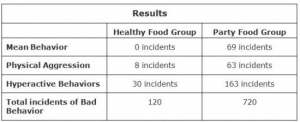
Reference:
The Food Hospital. BBC (2011). 4.


